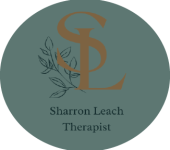Anxiety
You may struggle with anxiety in various ways and it can impact on your enjoyment of life. Here are a few common ways in which anxiety can manifest and cause difficulties for you:
- Physical symptoms: Anxiety can lead to a range of physical symptoms, such as rapid heartbeat, shortness of breath, trembling, sweating, dizziness, or stomach aches. These physical sensations can be distressing and may make you feel like you are losing control or experiencing a medical emergency.
- Constant worry: Anxiety often involves excessive and persistent worry about various aspects of life, such as work, relationships, health, or future events. This constant worry can be overwhelming and make it difficult for you to focus on tasks or enjoy activities. You may find yourself constantly preoccupied with negative thoughts and worst-case scenarios.
- Social anxiety: It may be that you struggle specifically with social anxiety, which is an intense fear of social situations and of being judged by others. This can make it challenging for you to engage in social interactions, attend social events, or speak in public. You may fear embarrassment, humiliation, or rejection, leading to avoidance behaviours and isolation.
- Panic attacks: Anxiety can sometimes escalate to panic attacks, which are intense episodes of fear or discomfort accompanied by physical symptoms like chest pain, sweating, trembling, and a sense of impending doom. Panic attacks can be terrifying and may lead you to fear having another attack, causing you to avoid certain situations or places.
- Obsessive-compulsive behaviours: Feelings of anxiety can also involve obsessive-compulsive behaviours, where you feel compelled to perform certain rituals or repetitive actions in an attempt to alleviate the anxiety. These behaviours can be time-consuming, interfere with daily life, and cause distress if not completed.
- Impact on daily functioning: Anxiety can significantly impact your daily functioning, making it challenging to carry out routine tasks, meet responsibilities, or maintain relationships. It may lead to difficulties in concentration, decision-making, and sleep disturbances, affecting overall quality of life.
- Emotional distress: Anxiety often causes emotional distress, including feelings of restlessness, irritability, fear, or a constant sense of unease. You may also experience mood swings, have difficulty controlling your emotions, or feel overwhelmed by the anxiety, leading to a decreased sense of well-being.
It is important to note that anxiety can vary in severity and impact from person to person and everyone’s experience is unique to them.
FAQ
What is therapy?
Therapy, also known as counseling or psychotherapy, is a professional relationship between a trained therapist and a client. Its goal is to help individuals overcome emotional or psychological difficulties, make positive changes in their lives.
Why should I consider therapy?
Therapy can be beneficial for various reasons, including managing mental health issues (like depression or anxiety), coping with life changes, improving relationships, and personal growth.
What happens in a therapy session?
Therapy sessions typically involve talking to the therapist about your concerns, feelings, and thoughts. The therapist may ask questions, provide insights, and suggest strategies for addressing your issues.
How long does therapy take?
The duration of therapy varies depending on individual needs and goals. Some people benefit from short-term therapy, while others may engage in therapy for several months or even years.
Is therapy confidential?
Yes, therapy is generally confidential. Therapists are bound by ethical guidelines and legal obligations to keep the information shared during sessions private. However, there are some exceptions, such as if a client poses a risk to themselves or others.
Can I benefit from therapy even if I don't have a mental health diagnosis?
Yes, therapy can be beneficial for personal growth, self-improvement, and addressing everyday life challenges, even if you don’t have a diagnosed mental health condition.
Is therapy only for individuals, or can couples and families also benefit?
Therapy is available for individuals, couples, and families. Couples therapy and family therapy can help address relationship issues, communication problems, and family dynamics.
Can I combine therapy with other treatments, like medication?
Yes, therapy can be used in conjunction with other treatments, including medication. This is known as a holistic or integrative approach to mental health care.
Get In touch
07980 734410
available from 09:00 – 20:00
Email hello@sharronleachtherapist.co.uk

